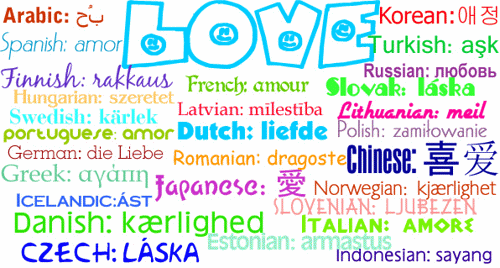Untranslatable expressions of love that we can all understand
Medical Pharmaceutical Translations • Jun 6, 2016 12:00:00 AM

If there’s ever a good reason to learn languages – or at least to look at lists of vocabulary words, this is it: You never know what you might find or how it might make you feel.
Saudade isn’t the only wonderful term on Dr. Pamela Haag’s list of untranslatable relationship words. But in addition to my enjoyment at discovering (or re-discovering) her picks, I also found myself wondering something: Love is one of the more relatable of human experiences, no matter what culture or linguistic background you hail from. So why doesn’t every language have a single word for some of those more complex aspects of it?
Is it because language is directly related to need or experience? Do, say, Norwegians experience the euphoria of first falling in love (forelsket), more than speakers of other languages?
Do couples lovingly run their fingers through each other’s hair (cafuné) more frequently in Brazil than anywhere else? (If so, I was born in the wrong country!)
Try to research this kind of question, which ultimately comes down to how human emotions and culture affect language, and you get replies as varied and complex as the experience of love itself.
You’ll probably come across Whorfianism, the concept that the language we speak influences how we see the world. But this theory has largely been debunked, and relatively easily at that. For example, assistant psychology professor Karen Lewis writes about an experiment where monolingual English-speakers and Japanese-speakers performed the same non-verbal tasks the same way, even though our languages differ when it comes to how we quantify nouns.
Simpler still, as this Dictonary.com blog post points out, just because a language may not be able to sum up a complex concept in a single word, doesn’t mean its speakers can’t understand and/or experience that concept. We may not all know or use the French term retrouvailles, but we’ve all probably experienced the joy of seeing someone again after being apart for a long time, which is one of the word’s common contextual definitions.
So if language doesn’t have a connection with how we see the world, maybe it’s a matter of finding out how words enter into a language. Why did Japanese speakers think it was important to have a short phrase (koi no yokan) to express the realization that you are going to fall in love with someone you’ve just met? Unfortunately, you’ll only find broad examples of how language’s lexicons evolve. One of which is, words that are adapted or adopted out of necessity. So were these particular love terms created because their respective cultures deemed them necessary?
A part of me wants to say “Yes!” But that part of me can’t find statistics to prove, say, that Bantu speakers are more familiar with gradually no longer accepting abuse in a relationship (Ilunga). In fact, Haag remarks that many marriages involve ilunga, to some extent. The same lack of proof is true for just about every expression on the list (except maybe yuanfen).
If nothing else, one thing is clear: This list of untranslatable love words, like all lists of untranslatable words, is fascinating because of the opposing reactions it evokes. On the one hand, it makes us think “Oh, those crazy/romantic/smart/poetic, etc. [insert language speakers here]!” and on the other hand, “Hey, even though I may not have even heard of some of the languages spoken here, I can understand every item on this list!”
It reminds us that while languages can vary impressively around the world, most of us have felt most of the emotions tied to love.
